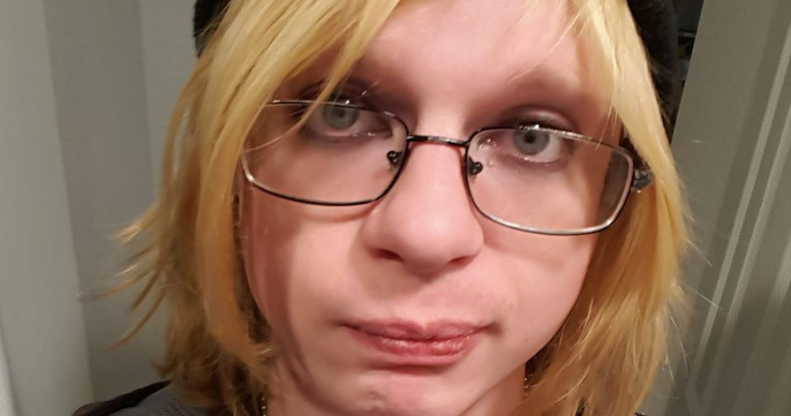Friends of a murdered trans woman couldn’t give her a funeral because of lockdown. So instead, they held a Zoom vigil

Johanna Metzger, a trans woman who was fatally stabbed in Baltimore on Saturday (Facebook)
When friends of Johanna Metzger, a trans woman who was murdered on April 11, couldn’t meet in person to pay their respects, they held a virtual vigil on Zoom to celebrate her.
Johanna Metzger, a trans woman from Pennsylvania, was fatally stabbed in Highview Avenue in the city of Baltimore.
Although few other details have been reported about her death, it is known that she was living at a recovery centre in Baltimore before she passed away. Her mother says that she taught herself how to play multiple instruments and was a college graduate.
With all non-essential businesses closed in Maryland since March 23, Metzger’s loved ones were unable to gather for her funeral. Instead a local LGBT+ group, Baltimore Safe Haven, held a virtual vigil in her memory on the video conferencing app Zoom.
“The trans community [and] LQBT+ nonconforming community matters and they need to step up and address this throughout the city,” Safe Haven founder Iya Dammons told WMAR2.
“This has gone on for way too long before COVID-19. Ten years, 10 bodies! Baltimoreans are you listening? This, it’s a lot.”
Before and during the pandemic, Safe Haven has been providing counselling, food, shelter and support for members of the LGBT+ community.
Witnesses to Metzger’s murder are urged to contact police with any information that could help them find her killer.
Queer people at risk during coronavirus pandemic.
As well as being more vulnerable to the coronavirus, queer people may be more likely to struggle with the pandemic restrictions as they risk being trapped at home with unsupportive or abusive family and partners.
Several LGBT+ helplines have seen a surge in calls from people who self-isolating, while one charity has advised young people to “hit pause” on coming out during the pandemic.
Shaun Schroeder of Baltimore’s Power Inside Women’s Day Shelter urged people to check their LGBT+ friends’ mental health at this time.
“Being trans is a lonely lifestyle, it can really be a lonely lifestyle at times,” he said.
“Now that we are able to roam freely and we’re accepted in community it’s like we’re shut right back indoors. It’s really affecting the mental health of the trans women in communities.”


